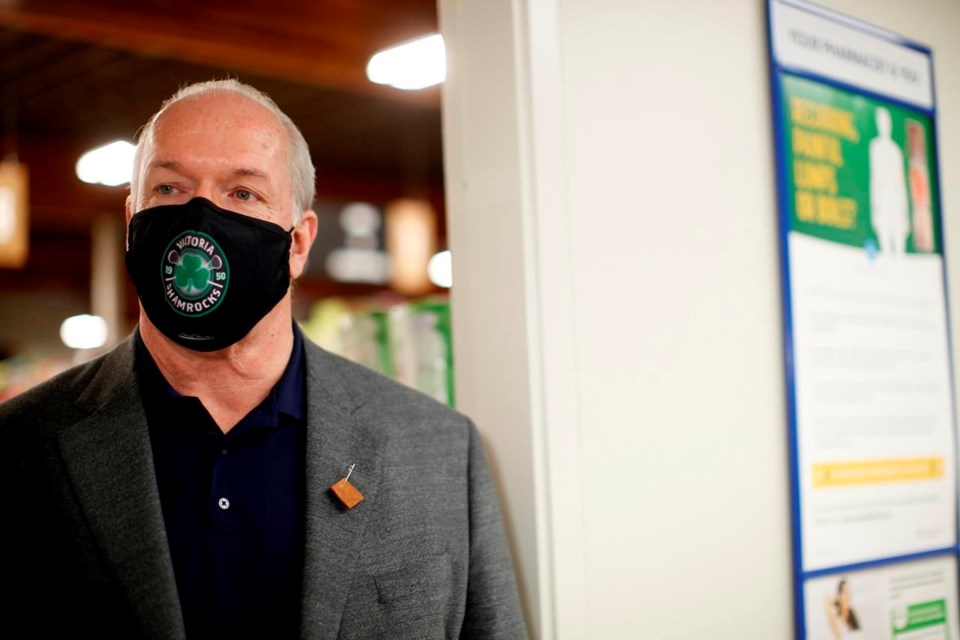VICTORIA — British Columbia has introduced legislation to convert an investment initiative into a Crown corporation with the authority to make independent decisions aimed at spurring economic recovery after the pandemic.
The $500-million InBC investment fund was created last September as a way for the province to join the private sector in supporting small and medium-sized companies, which make up 98 per cent of all businesses in the province.
Premier John Horgan said Tuesday the purpose of the fund is to make investments that achieve a financial return by meeting the government's social, economic and environmental policy objectives, including building a more innovative, low-carbon economy.
The corporation is expected to be operational by the fall led by a chief investment officer who is yet to be hired and will be responsible for making decisions without interference from outside parties or the government. A board of directors appointed by the cabinet is expected to be in place by next month and will include two public servants and seven people from outside the public service.
The fund is fashioned after models in Denmark and Ireland, and it will support startups and help promising companies attract top employees to support the post-pandemic economy in all regions, Horgan told a news conference.
He said the fund sends a message for companies to put down roots in B.C. as the province establishes itself as a low-carbon, competitive jurisdiction to do business.
"Too often in the past the good ideas that have come from post-secondary institutions have migrated to other jurisdictions for a host of reasons."
Adam Pankratz, a professor at the University of British Columbia's Sauder school of business, said he's concerned about a lack of complete independence for the fund.
"I'm not saying it's a bad thing because $500 million is certainly a lot of money. I would certainly have concerns that the board of directors is appointed by cabinet and that generally the government is not that good at picking winners and losers in business."
However, Ravi Kahlon, the minister of jobs, economic recovery and innovation, said the legislation he introduced makes clear that board members cannot take projects forward and any decisions made by the chief investment officer are wholly independent.
"It's similar to funds that we've seen internationally, and we've taken that advice from the private sector, which said this is the best way to structure the board," Khalon said.
An annual report on the progress of the fund will be made public online and an independent audit will be done every five years, he said.
Wendy Hurlburt, president and CEO of LifeSciences BC, said the province is home to Canada's fastest-growing life sciences sector and includes nearly 2,000 companies employing about 20,000 people.
Over the last year, she said B.C's life sciences innovation has been at the forefront of addressing COVID-19 challenges including vaccine development by University of British Columbia researchers who developed a key component for injecting the Pfizer-BioNTech vaccine through a spinoff company.
Great ideas found through research have often been exported because promising startups didn't get the support to scale up, Hurlburt said.
Horgan also said businesses need support in providing employees with paid sick leave to curb COVID-19 and he's "disappointed" the federal government failed to provide a national program in its recent budget.
Horgan said he raised the issue with his counterparts across the country and Prime Minister Justin Trudeau last May, but "there was no appetite for it."
British Columbia formally extended its provincial state of emergency Tuesday until May 11, allowing officials to continue using extraordinary powers under the Emergency Program Act.
That allows for enforcement measures including those prohibiting residents from leaving three main health authorities around the province.
Horgan said the province is expected to provide more details about enforcement later this week.
— By Camille Bains in Vancouver
This report by The Canadian Press was first published April 27, 2021.
The Canadian Press



